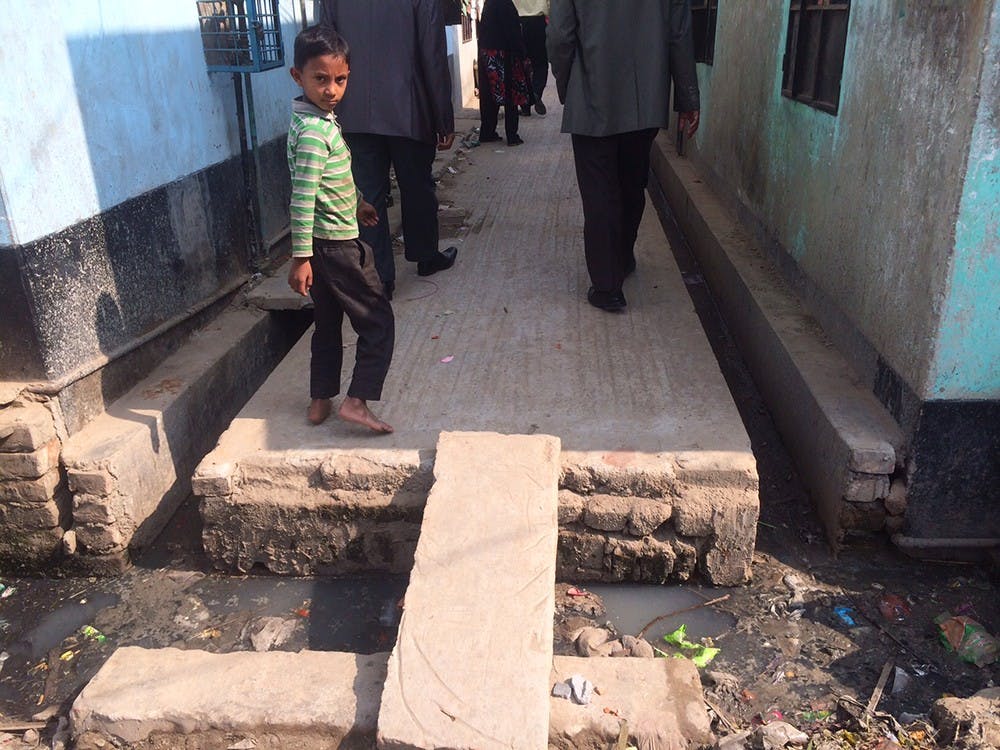Studying impoverished children in Bangladesh, Dr. Jeff Donowitz, infectious disease specialist at Virginia Commonwealth University and infectious disease fellow at the Medical School, was the head researcher of a two-year-long study that found the overgrowth of bacteria in the small intestine likely causes a stunt in growth, cognitive delays and possibly the failure of several oral vaccines.
Donowitz works specifically on small intestine bacterial overgrowth (SIBO) — when normal bacteria in human small intestines are present in increased numbers.
About a year and a half ago, Donowitz joined the lab of Dr. William Petri, an infectious disease specialist. Petri had been studying environmental enteropathy, or inflammation of the intestinal tract.
“This work was a part of one of Dr. Petri's larger studies, which was a two-year birth cohort where we followed these kids from birth to two years of age,” Donowitz said.
Donowitz and his colleagues collected a large amount of data on about 90 children, ranging from height and weight, responses to oral vaccines, measurements of inflammation and SIBO.
Measuring SIBO is non-invasive — a breath test measures the amount of hydrogen gas in the breath, which indicates the overgrowth of bacteria in the small intestine.
In his study, Donowitz hoped to discover why children in the developing world get SIBO. In the United States, SIBO occurs when children have abnormal gastrointestinal tract anatomy. However, Donowitz initially didn’t understand why so many kids in developing nations, who did not all have anatomical problems, had SIBO.
“What we learned was it was associated with poor sanitation. Being in close proximity to waste is a risk factor,” Donowitz said.
According to Richard Guerrant, director of the Center for Global Health and professor of international medicine, there is no inherent predisposition to abdominal inflammation.
“Children start off doing really well even in impoverished areas, but usually when
they're getting weaned they start eating all sorts of pathogens and bad things in their food and water… and they get all these gut infections,” Guerrant said.
These infections cause poor absorption of nutrients, and for those with insufficient diets, they also impair cognitive functions in children with an IQ difference of 10 points.
“Human babies develop almost all of our cognitive synapses and capacities in that first two years of life,” Guerrant said. “We’ve learned it’s the critical period.”
Guerrant believes environmental enteropathy is the biggest health problem in the world, especially among the poor.
“The number that are moderately to severely stunted under five is around 160 million. And that represents one in every four or five children in the world,” Guerrant said.
Both Donowitz and Guerrant agree preventing abdominal inflammation, subsequent growth stunt and cognitive deficits in children come down to providing clean water and better sanitation.
“I'm not in the business of politics and infrastructure,” Donowitz said. “Until those things happen, there are always gonna be kids that have these type of conditions, and what we're looking for are ways that we can actually intervene and prevent the growth stunting, prevent the cognitive delays [and] prevent the oral vaccines from not functioning.”
Fortunately, SIBO is treatable with antibiotics, but overuse of antibiotics can be a serious problem too, with the potential to create resistant strains of bacteria.
“Now we're on the hunt for where exactly is the time point when a course of antibiotics would most benefit these children,” Donowitz said.
Donowitz said combating enteropathy is key to help the developing world’s poor bring themselves out of poverty.
“When your children are dying and when your children are not healthy and you're focused on these very basic human needs, it’s much harder to focus on moving up,” Donowitz said. “As we look at how best to help the developing world countries, I think giving the individuals on the ground the best health that we can and limiting their children dying from preventable diseases, that's where the real impact of this work lies.”







